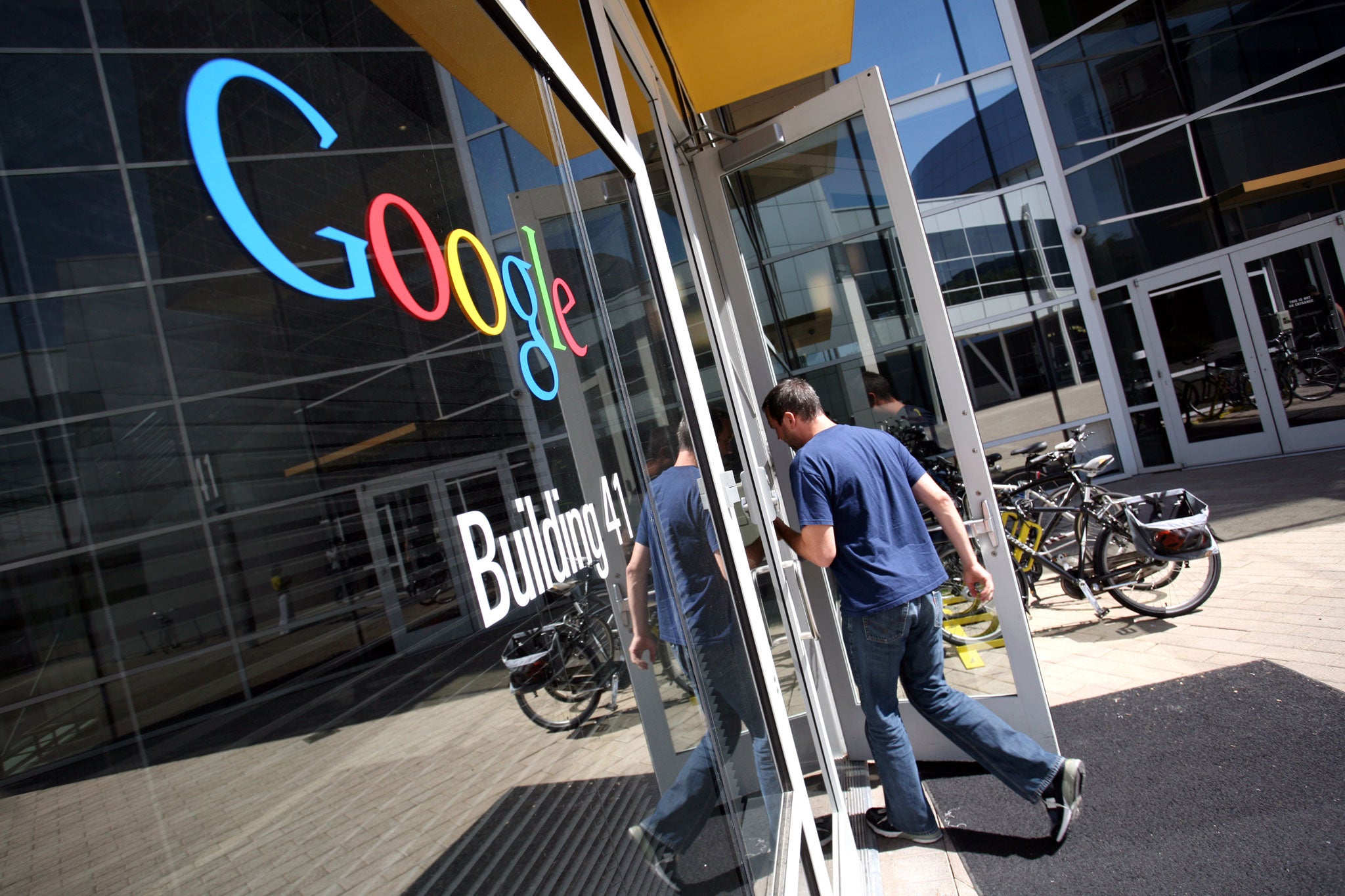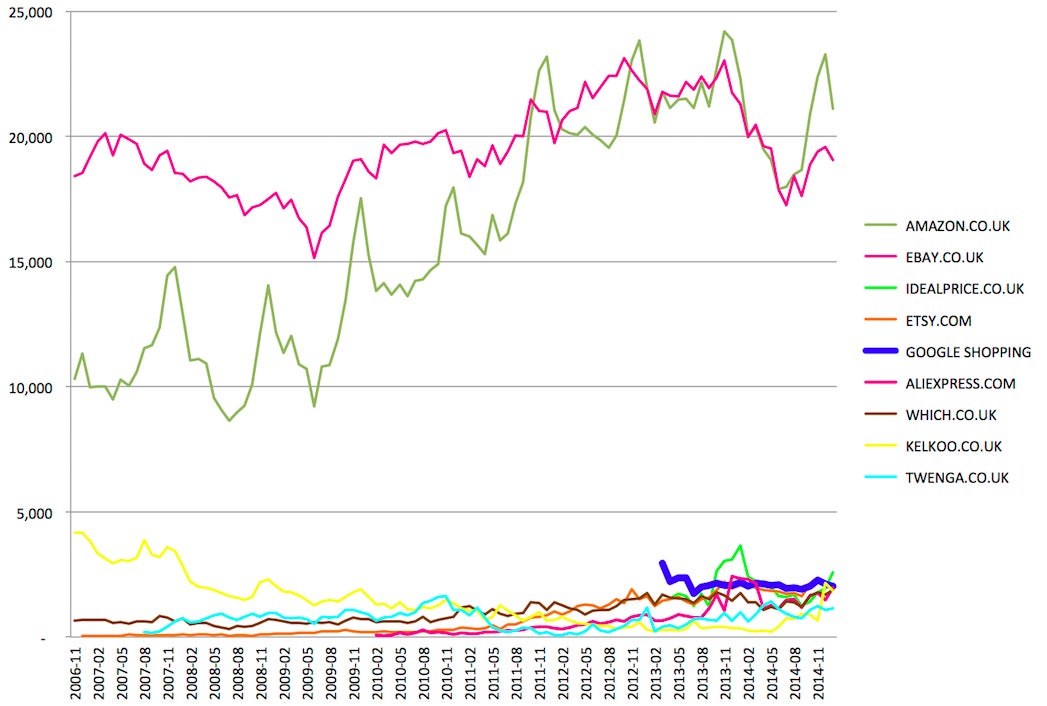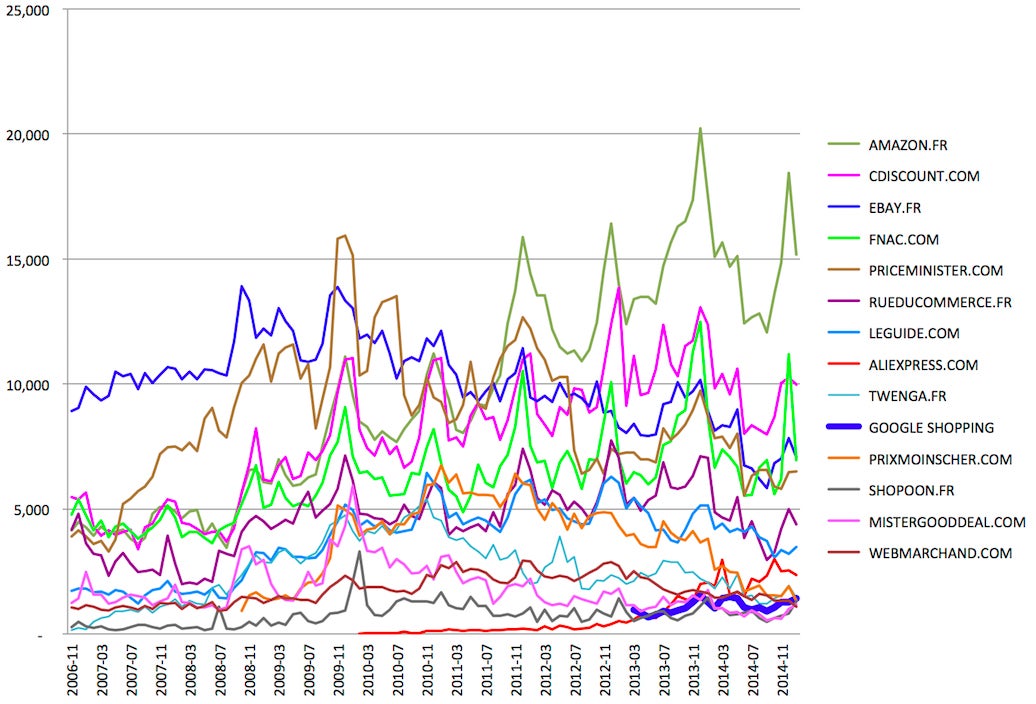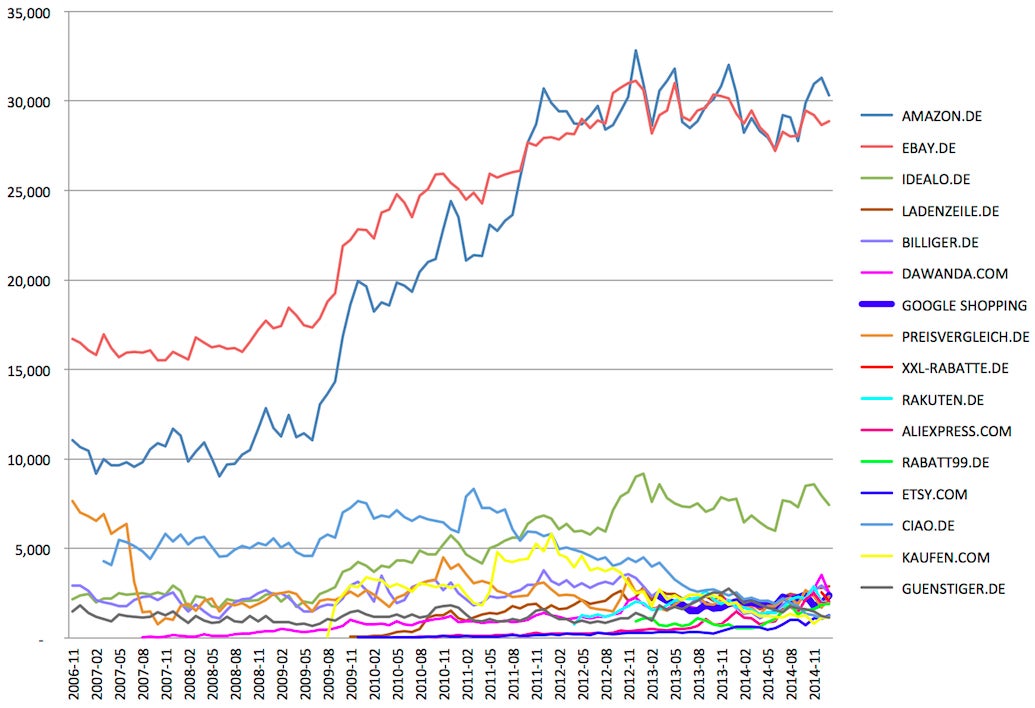Google takes on EU anti-trust case with charts showing how weak it is
Search giant has seized the opportunity of a huge EU anti-trust case to also show off how well it's doing

As part of a response to an EU anti-trust case that could see it hit with huge fines and other punishments, Google has released two blogposts and a series of charts that it hopes will convince people it has helped encourage rather than stifle competition.
Google released a post called “The Search for Harm”, which addressed the claims that its shopping services had hurt competitors, and that it had used its huge power in the search market to promote its own products.
It released another post with the headline “Android has helped create more choice and innovation on mobile than ever before”, in response to the EU’s allegation that Google abused its power in its agreements with other companies that used the mobile operating system.
The two posts allow Google in part to show how quickly it has grown in the markets that it has entered in recent years, such as European shopping comparison. But the company also says that it has done so without harming its competitors, a key part of the European Commission’s claims.
Three of the charts featured as part of its blogs shows shopping sites in Germany, and how each of their numbers of unique visitors has grown before and after Google entered the market. Google claims that the charts show how Google’s entry into the market “have not harmed the competition”.
Shopping sites in the UK. Google's entry to the market is shown by the thick blue line.

Shopping sites in France

Shopping sites in Germany

Some of the charts — particularly those showing Germany and the UK — do seem to show some impact on the top two sites as Google enters the market. While neither show marked declines for Amazon or Ebay, both seem to flatten out and lose the clear growth that they were experiencing before Google launched its own shopping products.
But Google also says that the proliferation of smaller sites, inhabiting the bottom of the graph alongside Google, also show that it has not harmed competition.
"Any economist would say that you typically do not see a ton of innovation, new entrants or investment in sectors where competition is stagnating—or dominated by one player. Yet that is exactly what’s happening in our world," writes Amit Singhal, senior vice president of Google Search, in his post.
Google's response to the investigation into Android was rejoiced more in its dominance of the mobile operating system market. But it said that "Android has been a key player in spurring this competition and choice, lowering prices and increasing choice for everyone".
It pointed out that there are over 18,000 different devices using the operating system, and that its Play store has over one million apps and paid out $7 billion in revenues to developers.
Join our commenting forum
Join thought-provoking conversations, follow other Independent readers and see their replies
Comments
Bookmark popover
Removed from bookmarks